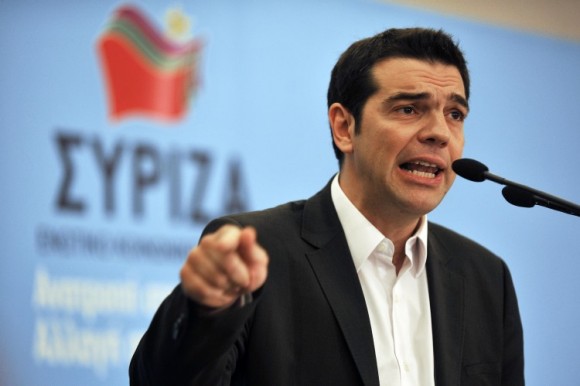
During the last week of February 2015, intense negotiations took place between the Greek government and the three members of the “Troika” – the International Monetary Fund (IMF), the Central European Bank (CEB) and the Eurozone. On Feb. 27, the Bundestag, by a massive majority, approved the four month extension of aid to Greece.
It looked very much like a “déjà vu”scenario: Greece deep in debt, Greece kept alive thanks to several rounds of loans, Greece repeating its promises to curb public spending, and put a stop to fraud, corruption and tax avoidance. The creditors, however, wanted to give the new government of Alexis Tsipras. a chance to prove itself. The objective was to strike a compromise between austerity reforms and measures granting some respite to the most vulnerable segment of the population. The Greek government had five days left before running out of money.

Greece joined the Eurozone on Jan. 1, 2001. Before 2000, the Greek deficit was about 13 percent of the Gross Domestic Product (GDP.) By some miracle, in order to meet the criteria for joining the European Union (EU), the deficit was brought down to 3 percent, or more precisely to 3.07 percent. Eurostat, the statistical office of the EU, the Organization for Economic Co-operation and Development (OECD) and other organizations, pondered over the figures. The situation was confusing, especially after the Goldman Sachs experts helped Greece with some “creative accounting” by deducting currency swaps and derivatives amounting to 2.8 billion from the calculation of the deficit.
Before 2012, Greece’s creditors were mostly private banks, such as the Société Générale in France. In March of that year, the banks agreed to cancel 70 percent of their loan or 107 billion. In 2010 and 2012, the “Troika” granted two rounds of loans, amounting respectively to 110 and 141 billion. Germany supports 30 percent of the Greek loan, France 23 percent (or 40 billion) and Italy 20 percent. The participation of the Eurozone members is proportional to the size of their population. The loans’s maturity is 30 years, 10 percent of the loan carries zero interest and the remainder has interest as low as 2 percent in 2015. It is important to note these facts in order to counter a lot of disinformation available on the internet.
The discussions, held in Brussels, went well until the disastrous final press conference when the new Greek minister of finances Yanis Varoujakis posturing as a cool Bruce Willis, (to use the Le Monde expression) first demanded that the “Troika” change its name and then asked for a “restructuring” of the debt. His tour of European capitals, ending in Berlin (where he should have started) was not much appreciated by the German Minister of Finance Wolfgang Schauble, who commented, “We agreed not to agree.” Varoujakis retorted, “We did not even agree not to agree.”
At a time when refugees and migrants try desperately to reach Europe, the immigration policy of the Tsipras’s recently-elected Syriza party is quite unsettling. Their plan calls for the retention centers, where refugees and migrants have been held until now, to be turned into “open centers;” to grant citizenship to 150,000 second generation children born in Greece; and to provide housing, schooling and medical care. How are these programs going to be financed? The wall built to protect the border between Turkey and Greece fell into disrepair after recent floods. Maintaining this wall is not a priority announced the government.
There is pretty much a consensus about Greece’s inability to ever pay back its debt. The creation of the European Funds of Stability and Finances in 2013 to “mutualize” the debt will help Europe absorb the Greek default with more serenity.
But it is far from a done deal. In four months, before your know it, there will be fierce opposition to write off the debt. Countries like Portugal or Spain are struggling through austerity and are are not about to continue bailing out Greece.

About the author: Nicole Prévost Logan divides her time between Essex and Paris, spending summers in the former and winters in the latter. She writes a regular column for us from her Paris home where her topics will include politics, economy, social unrest — mostly in France — but also in other European countries. She also covers a variety of art exhibits and the performing arts in Europe. Logan is the author of ‘Forever on the Road: A Franco-American Family’s Thirty Years in the Foreign Service,’ an autobiography of her life as the wife of an overseas diplomat, who lived in 10 foreign countries on three continents. Her experiences during her foreign service life included being in Lebanon when civil war erupted, excavating a medieval city in Moscow and spending a week under house arrest in Guinea.